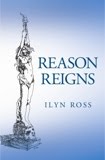"We hold these truths to be self-evident, that all men are created equal, that they are endowed by their Creator with certain unalienable Rights, that among these are Life, Liberty and the pursuit of Happiness. — That to secure these rights, Governments are instituted among Men, deriving their just powers from the consent of the governed, — …"
The ONLY proper function of government is to "secure these rights." Government is force, and force against non-force is evil.
"Rightful liberty is unobstructed action according to our will within limits drawn around us by the equal rights of others. I do not add 'within the limits of the law' because law is often but the tyrant's will, and always so when it violates the rights of the individual." – Thomas Jefferson
“A wise and frugal Government, which shall restrain men from injuring one another, shall leave them otherwise free to regulate their own pursuits of industry and improvement, and shall not take from the mouth of labor the bread it has earned. This is the sum of good government.” – Thomas Jefferson
“To take from one, because it is thought that his own industry and that of his fathers has acquired too much, in order to spare others, who, or whose fathers have not exercised equal industry and skill, is to violate arbitrarily the first principle of association, ‘the guarantee to every one of a free exercise of his industry, and the fruits acquired by it.’” -- Thomas Jefferson
"The Constitution is not an instrument for the government to restrain the people; it is an instrument for the people to restrain the government -- lest it comes to dominate our lives and interests." -- Patrick Henry
"Perfect freedom is as necessary to the health and vigor of commerce as it is to the health and vigor of citizenship." -- Patrick Henry
Thomas Jefferson said that every word in the Constitution is SUBSIDIARY ONLY TO THE EXECUTION of the principles enshrined in the Declaration of Independence: 1) equal inherent inalienable rights, 2) The ONLY proper function of law and of government is "to secure these rights."
7. Resolved, That the construction applied by the General Government (as is evidenced by sundry of their proceedings) to those parts of the Constitution of the United States which delegate to Congress a power “to lay and collect taxes, duties, imports, and excises, to pay the debts, and provide for the common defense and general welfare of the United States,” and “to make all laws which shall be necessary and proper for carrying into execution, the powers vested by the Constitution in the government of the United States, or in any department or officer thereof,” goes to the DESTRUCTION OF ALL LIMITS prescribed to their powers by the Constitution: that words meant by the instrument (Constitution) to be SUBSIDIARY ONLY TO THE EXECUTION OF LIMITED POWERS, ought not to be so construed as themselves to give unlimited powers, nor A PART TO BE SO TAKEN AS TO DESTROY THE WHOLE residue of that instrument... -- Thomas Jefferson, The Kentucky Resolutions of 1798
Thomas Jefferson said: “Reason and persuasion are the only practicable instruments.” To remove the use of force from citizen interactions so that individuals may deal with each other only by reason and persuasion, citizens delegate their right to self-defense to their government. Citizens cannot delegate a right they do not possess – hence, the government has no right to regulate inherent inalienable Rights, including the rights of individuals who hold that selfishness is a virtue. -- Royal Serf


2 comments:
"I think all the world would gain by setting commerce at perfect liberty."
-- Thomas Jefferson, July 7, 1785
It should be our endeavor to cultivate the peace and friendship of every nation.... Our interest will be to throw open the doors of commerce, and to knock off all its shackles, giving perfect freedom to all persons for the vent to whatever they may choose to bring into our ports, and asking the same in theirs.
Thomas Jefferson, Notes on the State of Virginia, Query 22, 1787
"The Constitution says, 'Congress shall have power to lay and collect taxes, duties, imposts, and excises, to pay the debts, etc., provide for the common defense and general welfare of the United States.'...I suppose its meaning to be that Congress may collect taxes for the purpose of providing for the general welfare, in those cases wherein the Constitution empowers them to act for the general welfare. To suppose that it was meant to give them a distinct, substantive power to do any act which might tend to the general welfare is to render all the enumerations useless, and to make their powers unlimited."
-1792, The Writings of Thomas Jefferson, edited by Albert Ellery Bergh
Post a Comment